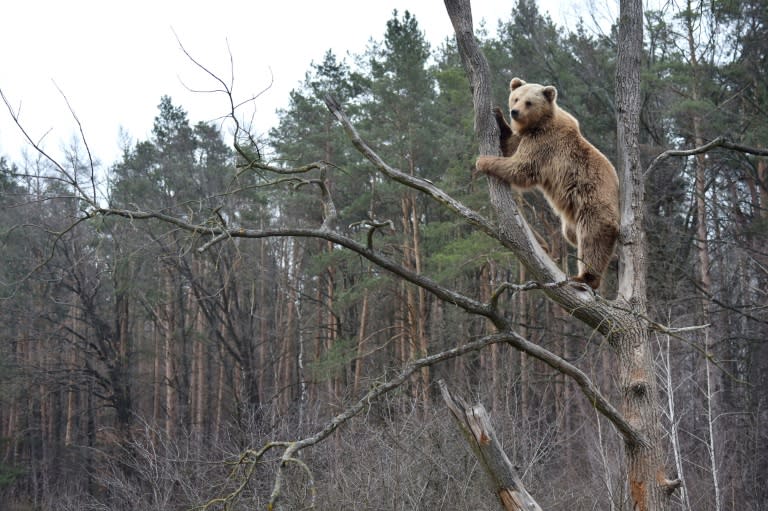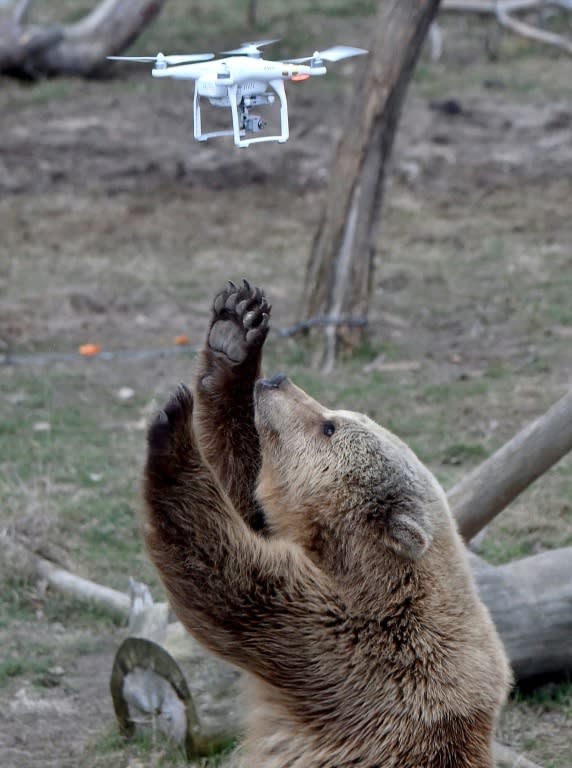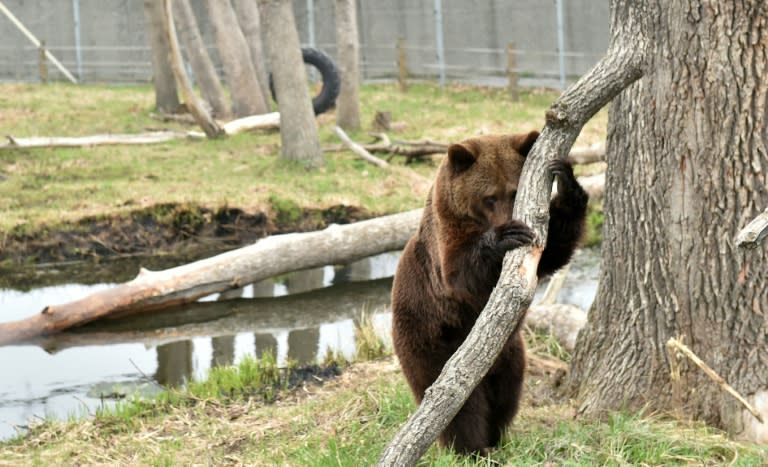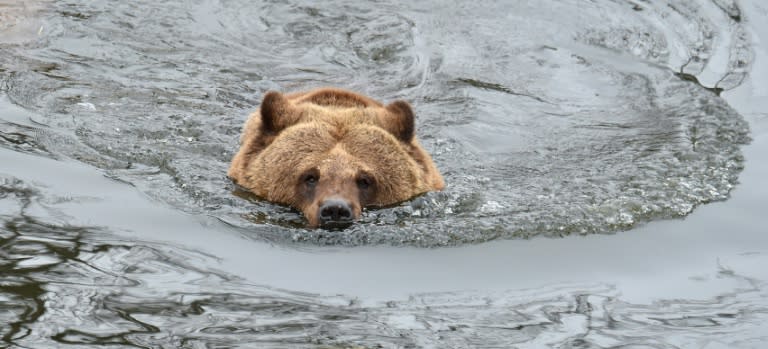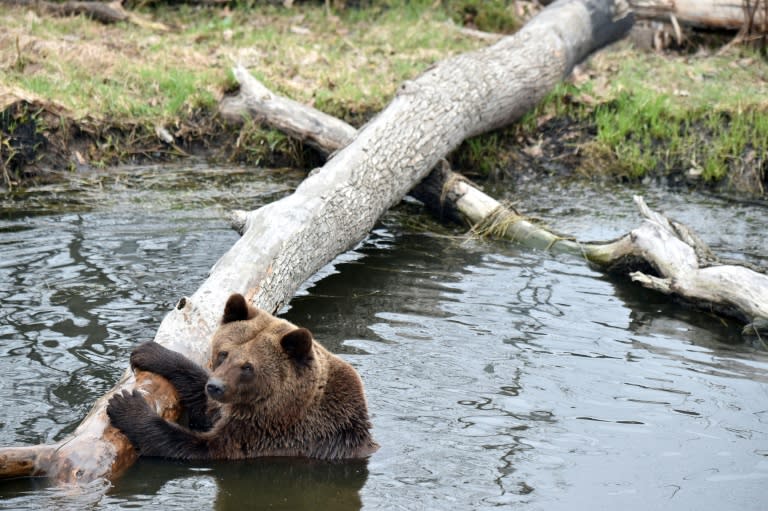Second lease of life for abused circus bears in Ukraine
Dental treatment by the best vets, open-air accommodation and fresh fish instead of dubious leftovers and abuse -- life has changed markedly for brown bears rescued from Ukrainian circuses and restaurants. Tortured for years by humans, the animals have received a second lease of life in the city of Zhytomyr in northwestern Ukraine. Opened in 2012 by the Vienna-based animal welfare charity Four Paws, the shelter soon became one of the region's prime attractions. "I saw bears before in Kiev zoos, but they were much sadder than here," Myroslava, 10, says in reference to the Ukrainian capital. "Here they are happy", says Myroslava after coming to the shelter with her school class and being particularly taken by a scarred female bare named Masha. "I don't like the fact that she was severely beaten before and that she has scars. I was scared for her." - A home for five - The whole shelter was initially built for only one bear named Nastya, who was seized from her mother when she was three months old and sold to a private zoo. It took two months for volunteers to find her and return her to her birthplace, but Nastya's mother refused to accept her as her own. Nastya was soon joined by another brown bear, Masha, who was rescued from a hunting dog training centre, where she served as the bait. "We received her in a terrible state: the hair on her neck had been worn away by a collar, her tail was torn off, nose scratched", shelter manager Oleksandr Leonov tells AFP. A law banning the training of hunting dogs on bears was only adopted in Ukraine in 2015, and it noticeably simplified the work of animal rights activists across the country. The shelter's staff usually finds out about abused animals from ordinary people and goes straight to the location to verify the tip. Once the bear is transported to Four Paws, a group of veterinarians from Austria and Germany come to Ukraine to make a physical examination and carry out all the necessary vaccinations. The bear is then released into the shelter's spacious enclosure, where the creature can finally start a new life. Four Paws park is now home to five brown bears saved from places such as roadside cafe and private circuses. "Olya (the oldest bear in the shelter) was blind when she came here. Possibly she was blinded on purpose", manager Leonov says. "And her teeth were in a very bad condition. Last year dentists came here to treat her teeth and everything is much better now." - Bears for sale - "It is considered fashionable to have a bear at home or in a restaurant, or to make money off people who get amused by seeing a bear on a chain", says Taras Boyko from the Four Paws wild animals department. "This complex problem is rooted in the mentality of our people." Maryna Shkvyrya, widely considered to be the leading scientific expert on bears in Ukraine, explains that most privately owned bears were already born in captivity, but that there was also a black market on which bears are sold. Some bears come from the Carpathian Mountains in Ukraine's west, but most are smuggled in across the border with Russia, where hunting for bears is legal and a lot of cubs are motherless. The east of the country has been ravaged by a three-year war with Russian-backed insurgents. "These cubs are sold as a gift, as a living toy, as an animal that will be the object for training hunting dogs", Shkvyrya says. "On the black market, prices start from $1,000 (945 euros) and go up to several thousand dollars per cub," she adds. Four Paws plans to open another large shelter for bears in the western Lviv region in September 2017 to bring them closer to their natural habitat. But there are no plans to release the saved bears into the wild. Their behaviour changes dramatically while in human captivity and they may be unable to cohabitate with other animals. "Our project gives these bears an opportunity to spend the rest of their life in normal conditions," Shkvyrya says. "And also to show people the consequences of animal abuse."

